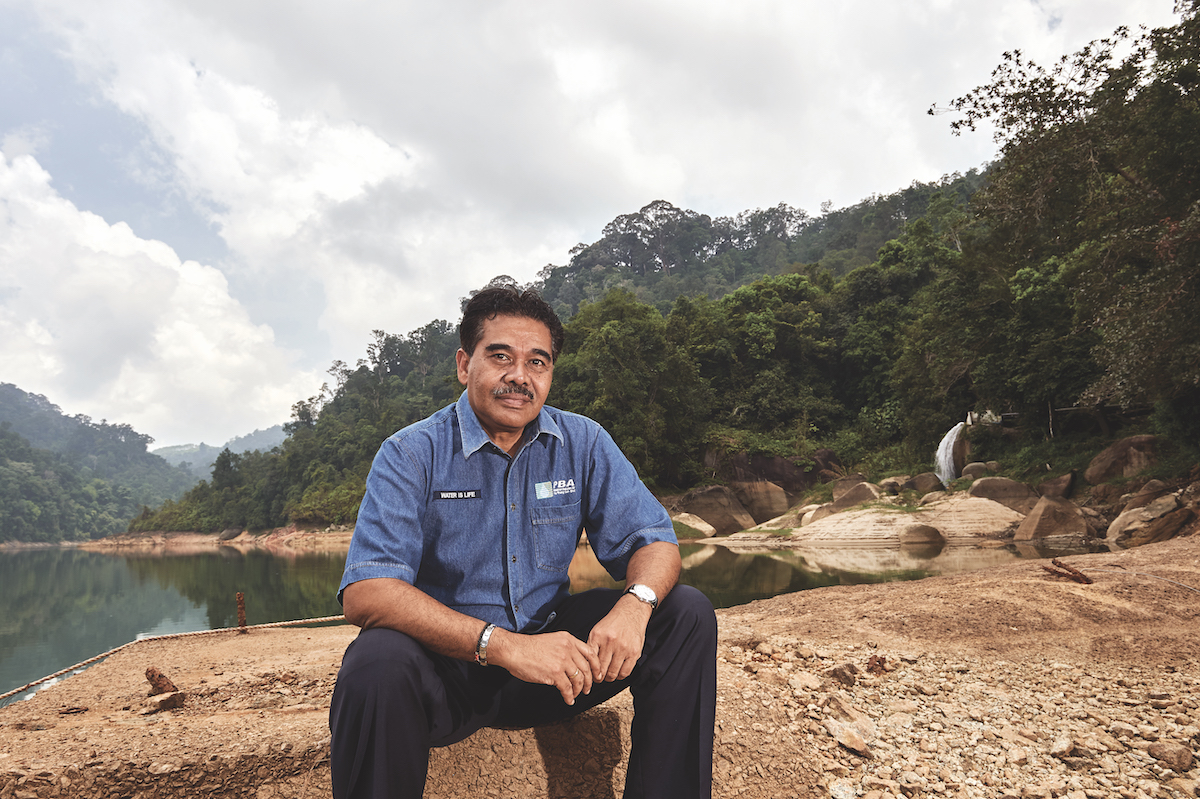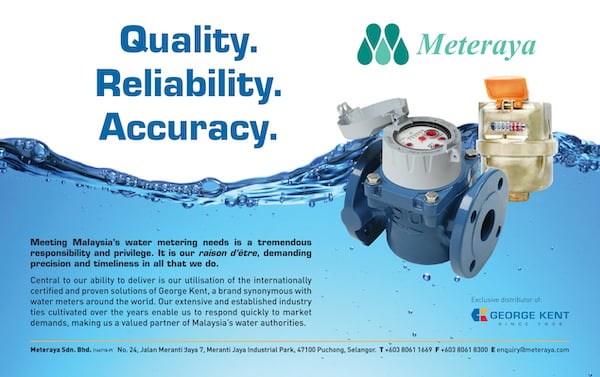The most important piece of advice that Jaseni Maidinsa has ever received did not come from a colleague, teacher or family member. It came from a stranger during a chance meeting on the other side of the world. While studying civil engineering in Scotland, Jaseni walked through Glasgow’s Royal Botanical Garden each morning on his way to university.

It was during these walks that he struck up a friendship with the resident gardener. “I would always see him working and I was so impressed, even when it was winter and -10˚C, this gardener was still working so passionately,” Jaseni says.
One day, the gardener invited Jaseni into his cottage for a cup of tea. “The walls were filled with shelves and shelves of books on botany,” he recalls.
“I knew straightaway that he was not a normal gardener; he was a very educated and well-read gardener. He might have been a gardener, but he could challenge any professor in the university on botany. This is what he told me: ‘Be the best in whatever you do.’ Simple. He said, ‘It doesn’t matter whether you are a professor or a gardener – accumulate the knowledge that is needed for that profession and you’ll have very high job satisfaction.’”
Nearly four decades on, Jaseni still reflects on the advice bestowed on him by the gardener. He has applied those words of wisdom to his 34-year career in the water supply industry, constantly striving to achieve his very best.
Since 2007, Jaseni has been CEO of Perbadanan Bekalan Air Pulau Pinang Sdn Bhd (PBAPP), the corporation responsible for meeting Penang’s water supply needs now and in the future.
He established the Penang Water Services Academy (PWSA), the first Malaysian academy to offer water supply industry competency training that is recognised by the federal government. In the past 12 years, PWSA has trained more than 4,000 people in sustainable water supply management for the developing world.
Jaseni is equally passionate about reminding people about the importance of water as an essential element that supports lives, lifestyles and socioeconomic activities on a daily basis.
“Everyone needs water and most people use it without a second thought. But, when you really think about it, there is no alternative to water in many aspects of our daily lives,” he says. “As such, whenever I address the public, I make it a point to stress that water is a precious commodity; it needs to be respected and valued. In this age of climate change and unpredictable weather, we must use water wisely and sustainably.”
“In this age of climate change and unpredictable weather, we must use water wisely and sustainably.”
Water conservation is becoming increasingly critical in Penang, the most dynamic and urbanised international hub for services, manufacturing and tourism in Malaysia’s Northern Corridor Economic Region (NCER), which also encompasses the neighbouring states of Perlis, Kedah and Perak.

With a geographic footprint of only 1,048 square kilometres, Penang is a state with unlimited growth potential but very limited raw water resources. Jaseni points out that Penang is the only state in Malaysia that is brave enough to proclaim a ‘no water rationing’ policy.
“At PBAPP, we prioritise supplying water 24/7, 365 days a year to 1.78 million people and an economy that generated MYR96.9 billion (US$23.1 billion) in GDP contributions in 2018. The record shows that Penang has not experienced water rationing in 20 years, since PBAPP was corporatisated in 1999. Since our job is not to implement water rationing, we simply plan ahead to avoid it,” he says.
Looking ahead, Penang must secure a second major raw water resource soon. “As at 2018, PBAPP had built up a water treatment reserve margin of 32.9% for Penang. This is the highest safety margin in Malaysia, but we cannot produce sufficient treated water for the future if we do not have sufficient raw water,” Jaseni says. “It has been projected that Sungai Muda (Muda River), our primary raw water resource since 1973, may only reliably meet Penang’s raw water needs until 2025.”
In 2018, Penang consumed an average of 840 million litres of treated water per day (MLD). Its water demand is projected to reach 1,483 MLD by 2030, 1696 MLD by 2040 and 1,884 MLD by 2050.
As such, PBAPP has to tap a second raw water resource by 2025. “At present, the most rational option is the Sungai Perak Raw Water Transfer Scheme (SPRWTS) which proposes the transfer of raw river water from our neighbouring state of Perak. However, as of September 2019, we are facing two key challenges: we must commission the SPRWTS by 2025 to minimise the risk of a raw water shortage, and Perak wants to sell us treated water,” Jaseni says.
“We need the Malaysian Federal Government to step in and help us work things out with Perak on time so that the SPRWTS may provide water security for Penang and Perak until 2050.”
“I am very passionate about supplying water to people because I get great satisfaction when I improve the quality of life of a family.”
In recognition of his leadership and contributions to the Malaysian water industry, Jaseni has received various awards. Three recent awards that stand out are the special Prime Minister’s Award for Leadership in Competency Training 2019 from Malaysian Prime Minister Tun Dr Mahathir; the MWA Malaysia Water Award for Management 2018 from the Malaysia Water Association; and the Distinguished Engineer Award 2018 from the Institute of Engineers Malaysia (Penang branch).
“Let’s be honest; I would not have received these awards if I were not serving as the CEO of one of the leading water supply organisations in Malaysia. PBAPP is not a one-man show. I lead a team of more than 1,000 people who are committed to excellence in water supply. In PBAPP, we benchmark our management systems to international ISO certifications for quality, environmental and occupational health & safety management. We also comply to certifications for information security management and chemical testing. So, I must give credit where it is due: these awards are the results of good teamwork by my team,” Jaseni says.
“While sharing the credit with my colleagues, I also remind them that such accolades are not laurels upon which we lay down and rest. Instead, we must regard our awards as motivational factors to do more, do better and be the best that we can be professionally. Recognition is good and much appreciated but results are more important, especially in the business of water supply management that impacts millions of lives daily.”
Proudly supported by:



